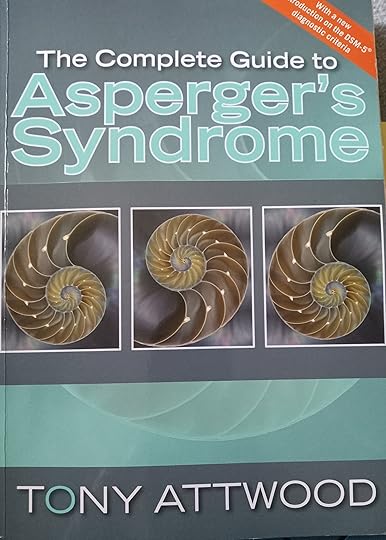Autism & Asperger’s – Different Isn’t Wrong
*** First and foremost: There’s nothing “wrong” with anyone. I hate that the word “wrong” is used for people who function differently from what’s considered “normal.” (Normal doesn’t really exist because it’s a relative baseline of expectation, not something that actually exists. It’s an arbitrary measurement of how people fit into the flow of a system of “desired” results without independent self-will or thought.) Everyone is an individual who was designed to be the specific person they are, with the specific gifts they have. Society at-large is responsible and irresponsible simultaneously for alienating individuals who don’t operate in a smooth way with the desired structure. Someone not “fitting” into something that’s expected of and from others doesn’t mean someone is “wrong” or has something “wrong” with them. Everyone is amazing, talented, beautiful, and deserving of love and respect. Always be you. ***
My son had this minor interest with South Park recently. One day he came home and was laughing hysterically over a clip from the show where they were saying someone had “ass burgers.” I told him it’s Asperger’s, not ass burgers, and he had some similar traits to those with Asperger’s. (Which I’d learned a little about in a partial manuscript I edited about different forms of autism and similar neurologic variations.)
This got me wondering just how closely his autism traits met up with Asperger’s. He was tested through school and they determined he had autism, but was highly functional, so he received extra help and some therapies/interventions. He did fine with everything so we never had him tested further. He also had social interaction at school, Boy Scouts, and eventually 4-H and FFA. Although a little bit quirky, he was well-liked socially by peers and adults. And, well, there’s no way my progeny wouldn’t be somewhat quirky—I make weird an art form!
Anyway, after the “ass burger” exchange, I became more curious as to what Asperger’s was exactly. I looked it up and read the shortlist of traits to my son, and explained which he had. We could both see it.
Sometime after that, I ran across a thread on social media that mentioned this book:

I bought a used copy on Amazon (it’s interesting where it’s highlighted and questions and names are written in—it tells a story that only used books can).
I’ve been reading it when I have time, which means I haven’t gotten too far into it yet. The beginning explains how diagnosis is determined. My son has the talk about his interests incessantly (especially when stressed), rich inner world (which he always shared outwardly—I’m an author, so I always encouraged his imagination and the expression of that imagination), and the reverting to previous comfort zone behaviors when stressed. And maybe a couple other things, but really low key. But…none of this was ever an issue.
I can see how his traits/quirks could have been an issue, but I was/am a very hands-on, involved parent. My son and I are very close. I accepted him for who he was and never expected him to conform to a ridged standard—I don’t believe in those. I’m all about individualism. So, I learned to adapt to him and communicate with him in ways he understood, never telling him it was the “wrong” way, because it wasn’t. It was his way. I understood what he was talking about, I didn’t try to change his behavior in any other way other than to teach him what he needed to know and do, and to be respectful of himself and others. Thankfully, I was able to be a stay-at-home mother for about seven and a half years and later work from home (after a period of working elsewhere), and I’m, by nature, very routine oriented. I believe the structure and attention helped a lot. It’s invaluable to make a child feel stable and loved…and accepted for who they are.
The talking incessantly about targeted interests never bothered me. He always fascinated me with his depth of knowledge on the subjects he was passionate about, and enjoyed that he wanted to share them with me. I love learning new things, so someone sharing their knowledge with me is usually a joy. And, something else I’ve recently learned is also an Aquarius trait helped too—subject jumping and being able to carry on a conversation of more than one subject at time. So, when my son was fixated on one subject, I was listening, but if I needed to address something else, I would introduce that subject or pose a question, and when that was completed, I would remind him of where he’d left off about what he’d been telling me. There were times where we’d be running three or more conversations at once and I don’t think he even noticed. I find this form of conversation challenging and stimulating—it keeps my brain from getting bored and keeps my son in his comfort zone. It’s not as necessary now that he’s older, but it does still happen from time to time. His interests don’t change as often, but I still enjoy him sharing what he learns with me.
One of my biggest things while he was growing up was that I wanted him to understand sarcasm. That took me awhile, but I finally got him there. Then he went full epic with puns for almost a year, I think. That was hilarious! And, at almost 19, he’s a master smartass and it’s beautiful. The stories he tells from work and joking around are amazing in his quick-wit genius.
We only had one time when he hardcore reverted to an old habit from stress. I just let him do it. I recognized it for what it was—stress. And it didn’t last long. Again, I didn’t tell him he was doing anything “wrong” or try to interrupt his process. His incessant chatter about his favorite topics increased when he was stressed, too, I noticed. But, again, I’d long since adapted to his way of communicating and had meshed it with mine.
If you would meet my son today, you wouldn’t even know he had any of these traits. He’s a mouthy, smartass, witty conversationalist. I must have done something right. He may have Asperger’s or another form of autism, but it doesn’t really matter. He’s him, and I love him just the way he is.
But I will continue to read the book and learn more. Who knows, maybe it will help me better understand, love, care for, and support those around me in the future.
Copyright © Rebecca Besser 2023



